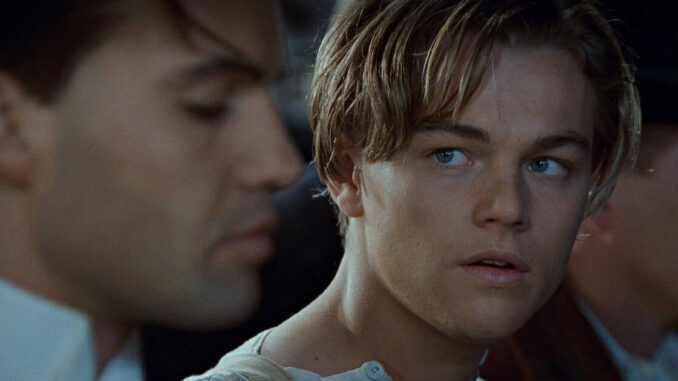
A Brush with Greatness, A Tide of Memories: Billy Zane and the Enduring Legacy of Titanic
The ocean is a powerful metaphor for memory. It stretches vast and deep, holding within its currents fragments of the past, swirling them in unpredictable patterns. For those involved in the making of James Cameron's "Titanic," the ocean of memory is particularly resonant. Decades have passed since the film's gargantuan success, yet its impact continues to ripple through pop culture, a relentless tide pulling actors, audience, and even the ship itself back into the spotlight. This is especially true when stories emerge of reunions, like the recent anecdote of Billy Zane sharing warm words for Leonardo DiCaprio. It's a moment that underscores the enduring power of a shared experience, the bond forged in the crucible of a cinematic phenomenon.
Billy Zane, forever etched in our minds as the villainous Cal Hockley, the epitome of privilege and disdain, embodies a crucial, often overlooked aspect of "Titanic's" success. He provided the necessary counterpoint to DiCaprio's Jack Dawson, the catalyst for Rose's rebellion and the heartbreaking loss that cemented the film's legendary status. Cal, the embodiment of a suffocating social order, represented everything Jack stood against: authenticity, freedom, and the intoxicating allure of the unknown. Without Zane's performance, Jack's charm might have lacked the sharp edge of contrast, Rose's defiance might have felt less courageous.
Therefore, Zane's warm words for DiCaprio, delivered years after the dust settled, are far more than a polite gesture. They speak to a recognition of the interconnectedness of their roles. They acknowledge the artistic partnership, the unspoken understanding that their individual performances were intrinsically linked to the film's overall success. Imagine two oarsmen rowing in unison; their individual strokes, though seemingly independent, contribute to the forward momentum of the entire vessel. Similarly, Zane and DiCaprio, as adversaries on screen, propelled the narrative forward, each fueling the other's performance.
Furthermore, such anecdotes provide a window into the human dimension behind the Hollywood glamour. It's easy to see actors as larger-than-life figures, untouched by the realities of everyday life. Yet, the making of "Titanic" was a grueling undertaking, demanding months of intense work, technical challenges, and the constant pressure of expectation. Sharing such an experience inevitably forges a bond, a camaraderie built on shared hardship and the eventual triumph of bringing a monumental vision to life. Zane's praise for DiCaprio is, in a way, an acknowledgment of this shared struggle, a quiet recognition of the sacrifices made and the victories earned.
Beyond the personal connection, this particular reunion and the public's fascination with it point to the enduring power of "Titanic's" narrative. The story transcends its historical setting, tapping into universal themes of love, loss, social injustice, and the resilience of the human spirit. Jack and Rose's romance, despite its tragic ending, continues to resonate with audiences because it represents the pursuit of freedom and the willingness to defy societal expectations. Cal, though a villain, represents the established order, the rigid structures that often confine and suppress individual desires. In acknowledging DiCaprio's contribution, Zane implicitly acknowledges the power of the story they both helped tell.
In conclusion, Billy Zane's warm words for Leonardo DiCaprio are more than just a celebrity anecdote. They are a ripple in the ocean of "Titanic's" legacy, reminding us of the human connection forged in the crucible of filmmaking, the interconnectedness of actors in bringing a story to life, and the enduring power of a narrative that continues to captivate and inspire. It is a reminder that even after decades, the tide of memory, like the vast ocean that consumed the Titanic, continues to bring fragments of the past to the surface, reminding us of the enduring power of art to connect us all. And in that connection, we find a deeper understanding of ourselves, our history, and the stories that define us.